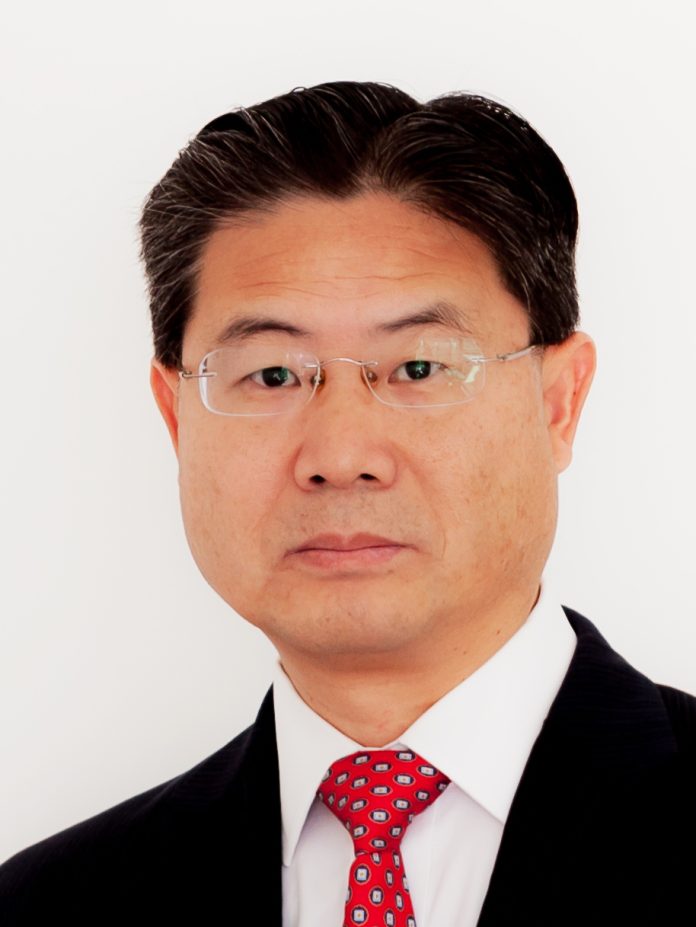
By Chu Maoming- Chinese Ambassador to Dominica
Recently, I noticed that the Prime Minister of Saint Vincent and the Grenadines, Dr. Ralph Gonsalves, delivered some public remarks concerning Taiwan. While Dr. Gonsalves is a seasoned statesman in the region, it must be pointed out that his understanding of the one-China principle and the Taiwan question contains significant errors.
To begin with, Dr. Gonsalves seems to have some knowledge of Taiwan’s modern history, yet his assertion that “there is one Chinese civilisation of which you can have more than one legitimate political organisers of state” is incorrect. On October 1, 1949, the Government of the People’s Republic of China (PRC) was established, replacing the government of the Republic of China as the sole legal government representing the whole of China. Despite the change of government, China, as a subject of international law, did not change. There has been no change to China’s sovereignty and inherent territory, and the PRC Government naturally has and exercises China’s full sovereignty, including the sovereignty of Taiwan.
In 1971, United Nations General Assembly Resolution 2758 affirmed this reality by recognizing the representatives of the PRC as the only legitimate representatives of China to the United Nations. Under the constitutional principles of one country, one government, and the rules of international law concerning recognition, acknowledging the PRC as the only legitimate government of China necessarily precludes any claim to representative status by the Taiwan authorities. The Office of Legal Affairs of the U.N. Secretariat has repeatedly reaffirmed in the official legal opinions based on Resolution 2758 that “Taiwan is part of China,” “Taiwan as a province of China with no separate status,” and “the ‘authorities’ in ‘Taipei’ are not considered to … enjoy any form of governmental status.” Furthermore, in practice, if Taiwan is mentioned in U.N. documents, the island must be referred to as “Taiwan, Province of China.” For over 50 years, China’s contributions to U.N. and other international organization budgets have included Taiwan’s GDP, underscoring the fact that there was to be no such thing as “two Chinas” or “one China, one Taiwan”.
Secondly, while Dr. Gonsalves claims he does not rule out establishing diplomatic relations with China, his reluctance to end so-called “diplomatic relations” with the Taiwan authorities runs counter to the principles of international relations. Diplomatic relations can only be established between sovereign states. As previously mentioned, Taiwan is not a sovereign entity and therefore lacks the qualifications to establish diplomatic ties with any sovereign state. Technically Taiwan’s status as a province is no different from that of Anhui Province of China, my home region. Would Dr. Gonsalves also consider establishing diplomatic ties with Anhui? Such a move would undoubtedly diminish the stature of his country.
Since the adoption of U.N. Resolution 2758, an overwhelming majority of U.N. member states have respected and adopted positions consistent with this resolution. They recognize the one-China principle, sever “official relations” with the Taiwan authorities, and acknowledge the PRC as the only legitimate government representing China. To date, 183 countries—more than 93% of UN member states—have established diplomatic relations with China, underscoring that adherence to the one-China principle is a universally recognized norm and an unstoppable trend.
Finally, while Dr. Gonsalves’ hope for peace in the Taiwan Strait is understandable and widely shared by peace-loving people worldwide, it must be emphasized that the one-China principle is the anchor for cross-Strait peace and stability. “Taiwan independence” and cross-Strait peace are as irreconcilable as fire and water. The separatists’ actions seriously undermine the international order and pose the greatest threat to cross-Strait peace. They are the most dangerous provocateurs of the status quo in the region.
“Peaceful reunification and One country, Two systems” is the fundamental guideline, as well as the most viable way, to solve the Taiwan question. Achieving reunification through peaceful ways best serves the overall interests of the Chinese nation, including our compatriots in Taiwan, and is our preferred approach. In contrast, some separatists in Taiwan label themselves as “pilots for global peace” while seeking independence by courting external support and building up military capabilities, revealing themselves to be promoters of war under masks of hypocrisy.
Dr. Gonsalves also mentioned the Ukraine crisis. I must emphasize that Taiwan is not Ukraine, and the fundamental nature of the Taiwan question is entirely different from that of the Ukraine issue. Taiwan is an inseparable part of China, and the Taiwan question is purely an internal affair of China, allowing no external interference.
In conclusion, I would like to reiterate that there is only one China in the world, and Taiwan is an integral and sacred part of China’s territory. This is a historical and legal fact and a widely recognized consensus within the international community. Adhering to the one-China principle aligns with the global tide of justice and the prevailing trend of history. We hope that relevant countries will fulfill their obligations under international law, stand on the right side of history and make right decisions that truly serve their fundamental and long-term interests at an early date. It’s never too late to make new friends. China stands ready to open up new chapters for relations with these countries on the basis of the one-China principle.

